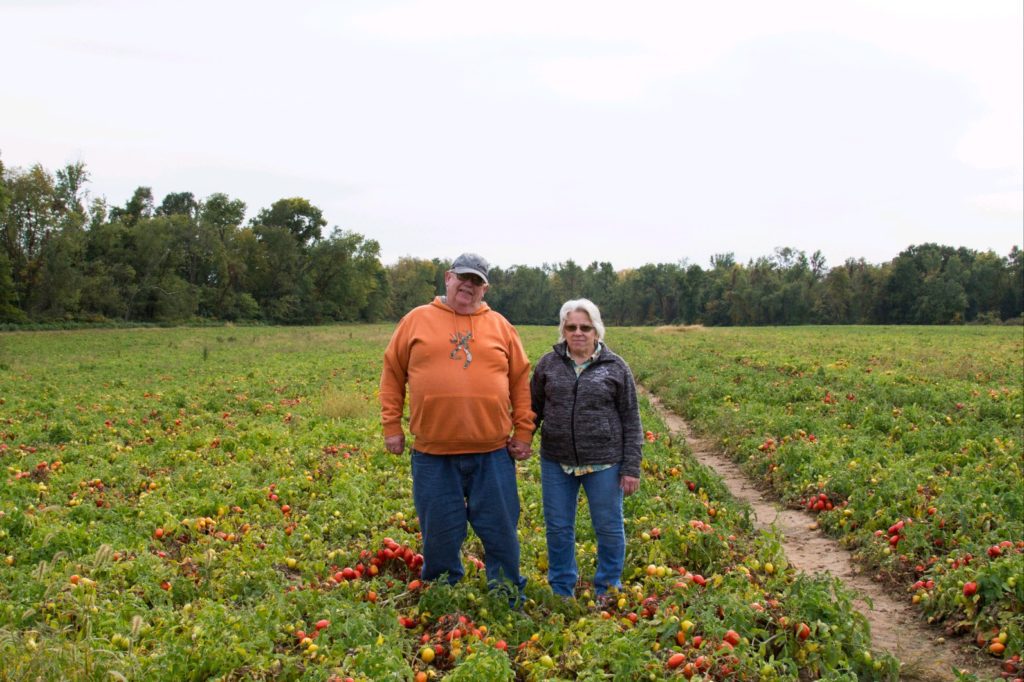

Jan 6, 2023Cover crops help Pennsylvania’s Anchor Farms
Cover crops and rotation are important parts of the formula for success for Anchor Farms, which grows vegetables along the banks of the Susquehanna River in north central Pennsylvania.
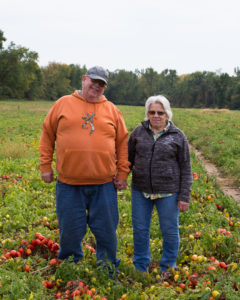

Joe Anchor grows green beans, broccoli, sweet corn and processing tomatoes on 115 acres of 600 total acres in New Columbia, Pennsylvania, 1 ½ hours north of Harrisburg, Pennsylvania. The balance is small grains including field corn, soybeans and wheat as rotational crops.
He grows snap beans, including green and wax, for processing. While he used to grow fresh tomatoes, Anchor had just one profitable season.
Broccoli was added in 2021 at the request of Furmano’s, a Northumberland, Pennsylvania, food manufacturing company which buys Anchor’s tomatoes, beans and other vegetables. They also requested string beans, which Anchor began growing contractually on rotation land.
Furmano’s also put Anchor in touch with a broccoli broker. Anchor transformed a riverside field of barley into broccoli, which is grown for the fresh market this year. The broccoli and string beans grow well.
Many locals return every summer for sweet corn, which Anchor describes as some of the best people have eaten.
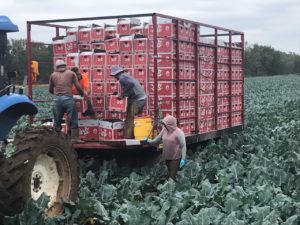

Susquehanna River farming
Anchor’s back door is 600 yards from the Susquehanna River. Benefits of growing close to a major river include irrigation water during dry periods.
Anchor’s soil receives moisture from the river, protecting it from frosts and decreasing the effects of drought in the area.
Anchor has irrigated from river water, but he’s also seen an entire crop go down the river when it floods.
Wheat, rye and crimson clover are cover crops. Crimson clover captures and helps repair nitrogen, aiding plant root systems, while cereal rye helps prevent erosion. Once nutrients are captured into the green plant tissue, they cannot erode into the river.
“We try to practice as much crop rotation as we can,” Anchor said. “You can do a lot with a bushel or a bushel-and-a-half of cereal rye after your crop.”
Anchor experiments with no-till practices as much as possible. He planted snap beans on no-till river bottom ground. The problem was unmarketable extraneous material, including old corn fodder, added residue into the following crop of snap beans.
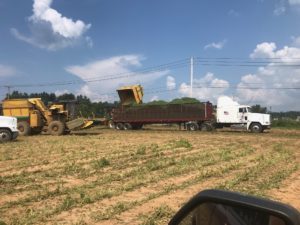

“We want to no-till where possible, protecting that soil from erosion from the river when it floods,” Anchor said. “Anything we can do along those lines to look after the soil that we have.”
Cutting crop protectants
Anchor employs integrated pest management practices. He rotates herbicides to avoid reapplying the same herbicides on the same ground. Growing up in his farming family, Anchor would dump pounds of insecticides on tomatoes to kill potato beetles, which became immune to the crop protectant.
“If, through proper management, we can go out there and raise a crop without having to spray more insecticides or extra weed killers, I would say that would be a win on my part,” Anchor said.
Working closely with Penn State Extension members, Anchor befriended Allen McNabb, a Penn State plant pathologist. Anchor kept records for McNabb to develop a spray program for early blight on Anchor’s tomatoes.
“We are farmers, we are stewards,” Anchor said. “We are called in the Bible to take care of the things we have. That’s how I view this agricultural industry. We have to be good stewards with the land for future generations, to give them something to grow with.”
Charles Joe Anchor, a World War II veteran who served in the Pacific Theater, began farming in 1959, raising chickens and contract tomatoes for Chef Boyardee. During the mid-1970s, he and his son, Charles Joe Anchor III, began working together. When he was 15, the younger Anchor signed his first tomato contract.
The elder Anchor’s 2013 death left a void in his son’s life, as did the earlier loss of his mother, who died at 54 shortly after her son graduated high school in 1977.
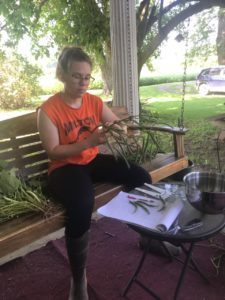

Unsure of what he wanted to do, Joe Anchor took a year off before taking classes at Pennsylvania College of Technology, earning an Associates Degree in ag business. Anchor and his father formed Anchor Farms in 1987.
Ag family
Two of Anchor’s four children are in ag careers. Daughter Courtney Parent, a 2017 Penn State graduate in plant science research with ag business and agronomy minors, is a field manager for Furmano’s.
She helps her father on the farm, soil testing and planning, while Christine Zimmerman works at Keystone Group Agricultural Seeds of Milton, Pennsylvania, which Anchor owns. He’s been in the grain seed business since 1998.
A 2019 stroke forced Anchor, 63, to relearn mathematical and science functions, temporarily preventing him from driving tractors. Courtney assists him in his recovery.
Living the farm life and raising his children the way he wanted remains the best part of farming for Anchor, who taught his children how to grow their own food as well as hunt and fish. Anchor and his were able to exert more of a parental influence on their children.
“I would not trade that for anything,” he said.
Anchor advises younger individuals considering growing new crops against planting a crop and assuming a market will be there for it. They should do their homework and study potential markets.
“Learn as much as you can about the crop and then provide a good quality crop to your customer base,” Anchor said. “Also, don’t grow something you don’t personally like or eat yourself. If one really enjoys eating sweet corn, quality sweet corn will be raised.”
Anchor relates to information he gained by attending numerous no-till meetings.
“There are a lot of opportunities to learn out there,” he said. “Don’t sit in your box. Get out and experience life.”
-By Doug Ohlemeier, Assistant Editor
Photos: Anchor Farms
PHOTO ABOVE: Joe and Evelyn Anchor of Anchor Farms in a field of tomatoes grown for processing. Cover crops and rotation are important to Anchor Farms’ success.














